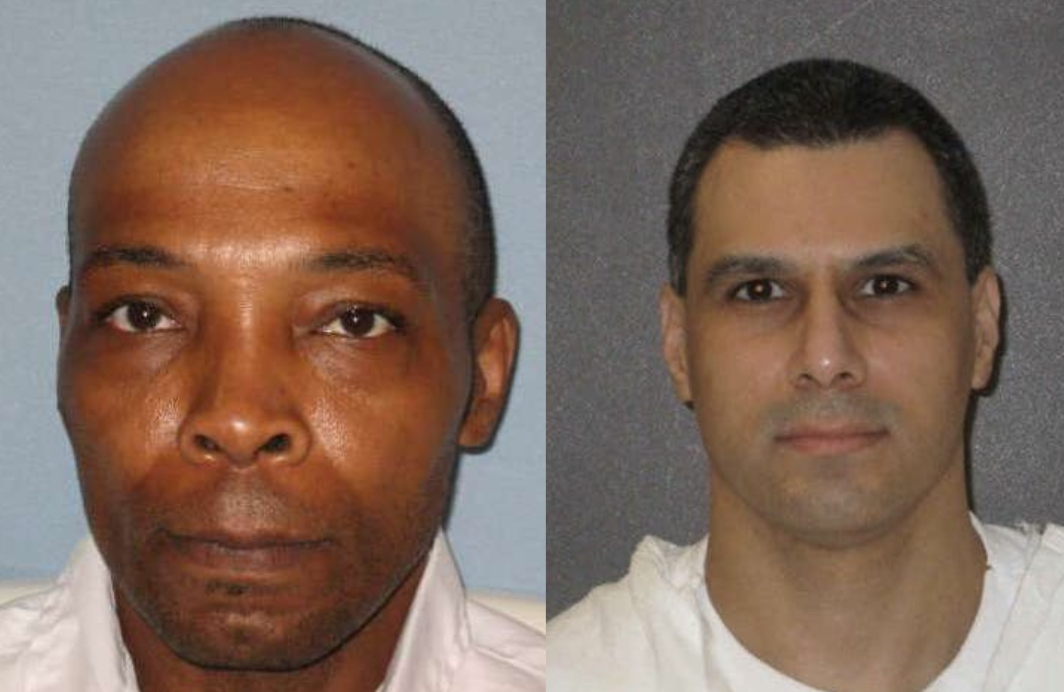
On Thursday, July 18, 2024, the state of Alabama is scheduled to execute Keith Gavin (pictured left) by lethal injection, despite court findings that his trial counsel was ineffective. Mr. Gavin was convicted and sentenced to death in 1999 for the shooting death of a delivery driver. A non-unanimous jury voted 10 – 2 in favor of the death penalty for Mr. Gavin, and the trial court accepted the jury’s sentencing outcome. During the penalty phase of trial, Mr. Gavin’s defense team did not present any mitigating evidence. In 2020, a federal district court found that Mr. Gavin had not received effective representation and remanded the case for a new sentencing hearing, but a federal appellate court reversed this decision.
In the United States Supreme Court’s decision in Woodson v. North Carolina (1976), the Court held that the Constitution requires that jurors must be “allow[ed] consideration of the character and record of individual defendants before inflicting the death penalty,” which would include the presentation of mitigating evidence. At Mr. Gavin’s trial, defense counsel failed to present this critical evidence that may have persuaded jurors to vote in favor of a life sentence without the possibility of parole. Following an evidentiary hearing, the federal district court found that Mr. Gavin “grew up in a gang-infested housing project in Chicago, liv[ed] in overcrowded houses that were in poor condition, where he was surrounded by drug activity, crime, violence, and riots.” Mr. Gavin also faced violence both at the hands of his father and peers as a child, but successfully completed his GED and took college courses while incarcerated in Illinois. After 17 years in an Illinois prison, Mr. Gavin had only one disciplinary write-up, and even Alabama’s expert witness testified during the post-conviction proceedings that he considered Mr. Gavin to be a “model prisoner.”
Mr. Gavin’s jury did not hear any of this evidence, as his counsel failed to investigate his background and life in preparation for the penalty phase of trial. The district court held that Mr. Gavin’s trial lawyers “were totally unprepared for the penalty phase,” calling just two witnesses — Mr. Gavin’s mother and a minister who did not know Mr. Gavin before arrest. Trial counsel admitted to the court that they had not prepared Mr. Gavin’s mother for testimony. At trial, the jury took just over an hour before returning a 10 – 2 verdict in favor of the death penalty, which is the minimum vote requirement for a sentence of death in Alabama. In nearly every other death penalty state, a non-unanimous jury verdict would preclude a death sentence. The federal district court ruled that Mr. Gavin’s trial counsel’s failure to present the mitigating evidence the Woodson decision requires undermined the reliability of his death sentence. However, the 11th Circuit of Appeals overturned this decision, ruling that the lower court did not have the authority to order a new penalty phase hearing.
Today, July 16, 2024, the state of Texas is scheduled to execute Ruben Gutierrez (pictured right) by lethal injection, despite untested DNA evidence that he claims will prove he did not commit murder. Mr. Gutierrez was convicted and sentenced to death in 1999 for conspiring with two other men to rob a trailer park operator in Brownsville, Texas, which ended in her death. Evidence presented at trial showed that two of the three men entered a mobile home and killed Escolastica Harrison as they looked for money stored in the home. Mr. Gutierrez has maintained that he stayed outside of the trailer, never entering the home, and that he did not know the others intended to kill Ms. Harrison. Attorneys for Mr. Gutierrez have argued that there is no physical evidence tying Mr. Gutierrez to the crime scene and that he offered a false confession only after facing threats from police that they would jail his wife and place his kids in foster care.
Mr. Gutierrez has spent more than a decade fighting to test the crime scene DNA to prove that he was not present when Ms. Harrison was killed. In 2011, the Texas Court of Criminal Appeals (TCCA) denied testing for Mr. Gutierrez, ruling that he had been convicted under Texas’ “law of parties” statute, which allows any individual involved in a crime to be held accountable for all other crimes committed in its commission. Mr. Gutierrez was the only individual sentenced to death for the murder of Ms. Harrison. One of his codefendants was sentenced to life in prison, while the other did not stand trial.
In 2019, Shawn Nolan, an attorney for Mr. Gutierrez, challenged a Texas law that dictates when DNA in settled cases can be tested. Mr. Nolan describes Texas’ law as “a Catch-22 that violates due process and the Constitution.” While one statute permits an individual to file an appeal arguing that he should not have received a death sentence, “the other statute says you can only get DNA testing if you can prove you’re innocent. Well, how do you prove you’re innocent before you get the testing?” asked Mr. Nolan. Mr. Gutierrez was denied clemency by the Texas Board of Pardons and Paroles on July 12, 2024. Attorneys for Mr. Gutierrez have asked the U.S. Supreme Court to grant a stay of execution and to rule on his ability to petition for DNA testing.
Michelle Pitcher, Texas Plans to Execute Man After Courts Refuse DNA Tests, Texas Observer, July 15, 2024; Brant Bingamon, Ruben Gutierrez Set to Be Executed, The Austin Chronicle, July 12, 2024; State of Alabama Plans to Execute Keith Gavin, Equal Justice Initiative, July 10, 2024.


